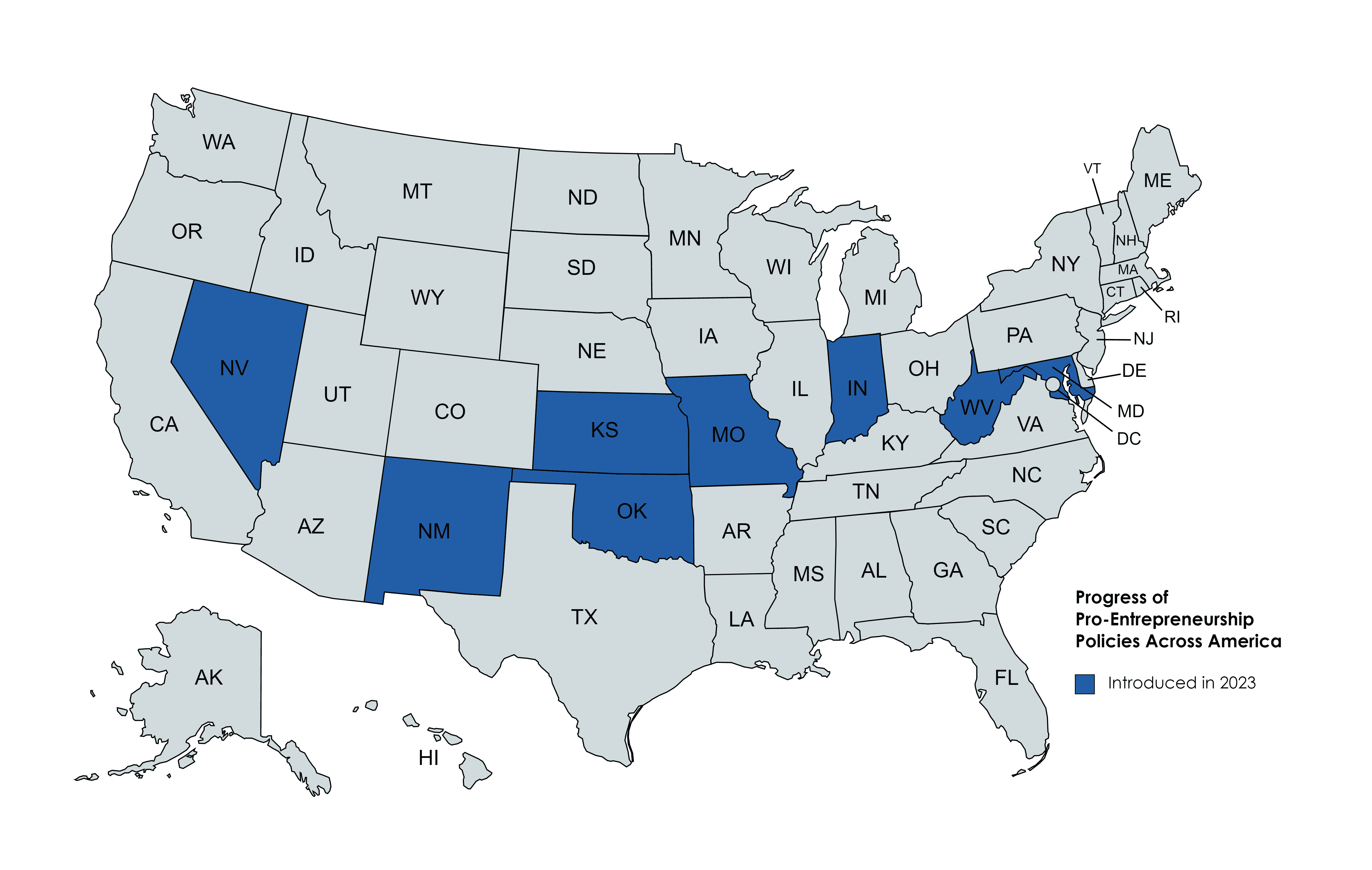These States are Supporting New Entrepreneurs
In his State of the Union address, President Biden stated that “over the last two years, a record 10 million Americans applied to start a new small business.” While the number is accurate, this is not the 17 million new businesses Intuit predicted for 2022 alone. Still, the data is still promising. After a “lost decade” of American entrepreneurship, it looks like startups are on the rise again in America.
The challenges facing these new businesses can be daunting: data from U.S. Bureau of Labor Statistics repeatedly shows that one out of every five new businesses folds within the first five years and that only “25% of new businesses make it to 15 years or more.” Closure is often attributed to a failure to raise capital. Other reasons include a lack of market need and or a mistimed product.
Perhaps harder for business owners to readily quantify is the cost of the time and effort needed to understand and comply with state and federal regulations. Some calculations put regulatory compliance as high as $12,000 per year for small businesses. For businesses with less than 50 employees, these costs are nearly 20% higher than the average for all firms. In states like New York that have high regulatory burdens, the compliance costs are presumably even higher.
It says something about the American spirit that, despite these daunting statistics, so many Americans still pursue entrepreneurship. And it is vital to state and national economic growth that these Americans continue to do so. New businesses generate almost all net job creation in America, and 44% of America’s economic activity is generated by small businesses each year.
Given this tension between startup vulnerability and job growth, states that want to strengthen their economies should take certain steps to encourage and foster new business growth. Reforms that reduce unnecessary regulations or that create regulatory sandboxes to allow businesses to temporarily bypass specific regulations are policy solutions worthy of consideration.
ALEC’s Right to Start Act is one of our Essential Policy Solutions for 2023 and is aimed at giving new businesses additional help during the first five years of operation. It creates an Office of Entrepreneurship to provide resources and support (including technical support) to entrepreneurs. The model contains additional reforms that can stand alone or be used in tandem to accelerate entrepreneurship. For example, Section B requires the state to track information like the “number and total dollar amount of state contracts awarded to [new] businesses.” Section C then encourages the state to award 5% of state contracts to new businesses.
As indicated in the map below, states across America are considering legislation that would implement reforms like the Right to Start Act. Maryland is also considering a similar bill, and just last week I testified to Maryland’s Ways and Means Committee about the importance of the pro-entrepreneurship policies found in HB 1152, the Entrepreneurial Equity Act.

America needs Americans to keep opening new businesses, but doing so is a risk-filled undertaking. As job creators continue to prove their grit and determination, states can support these endeavors by passing reforms like the Right to Start Act to help them succeed.

